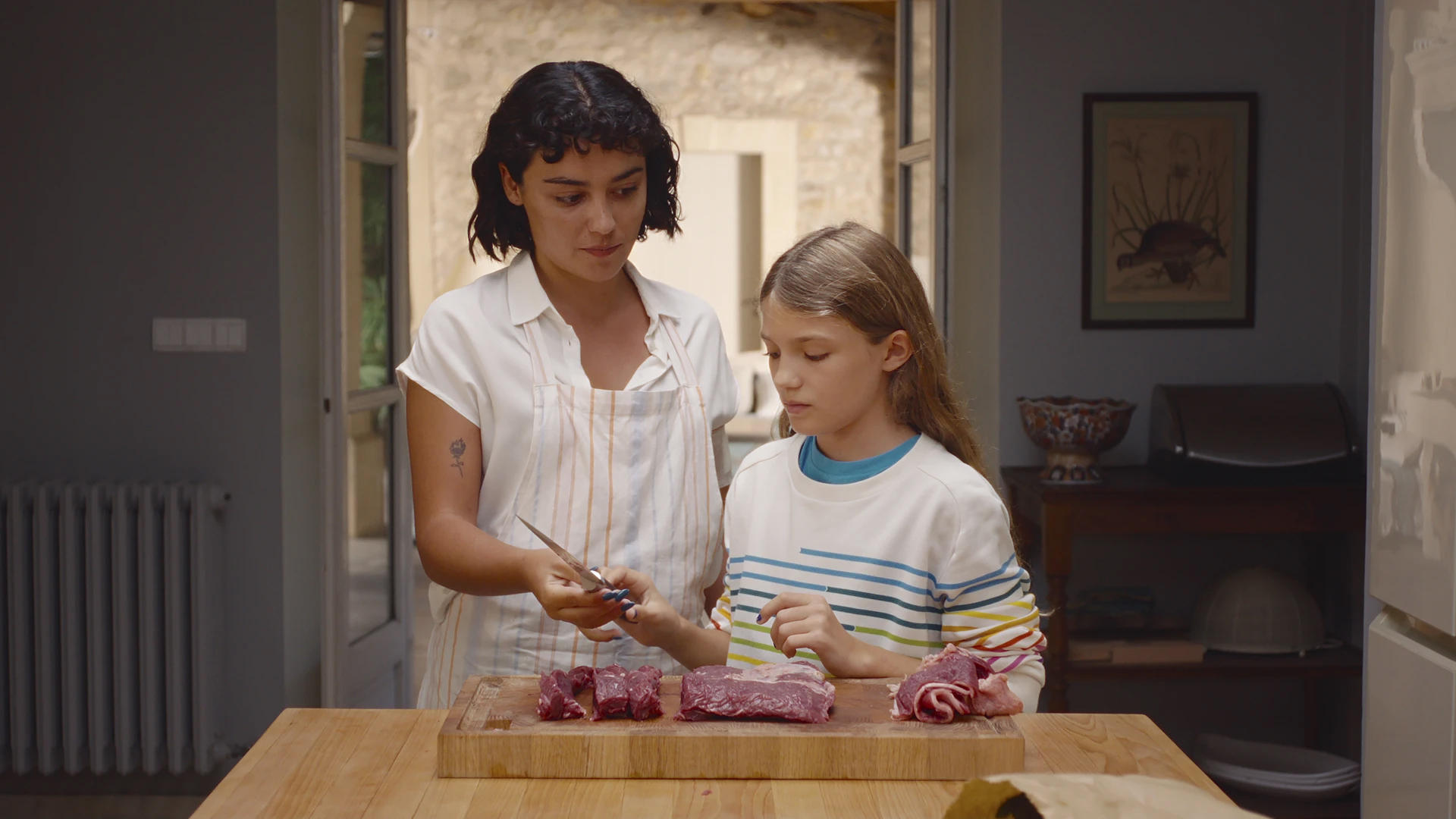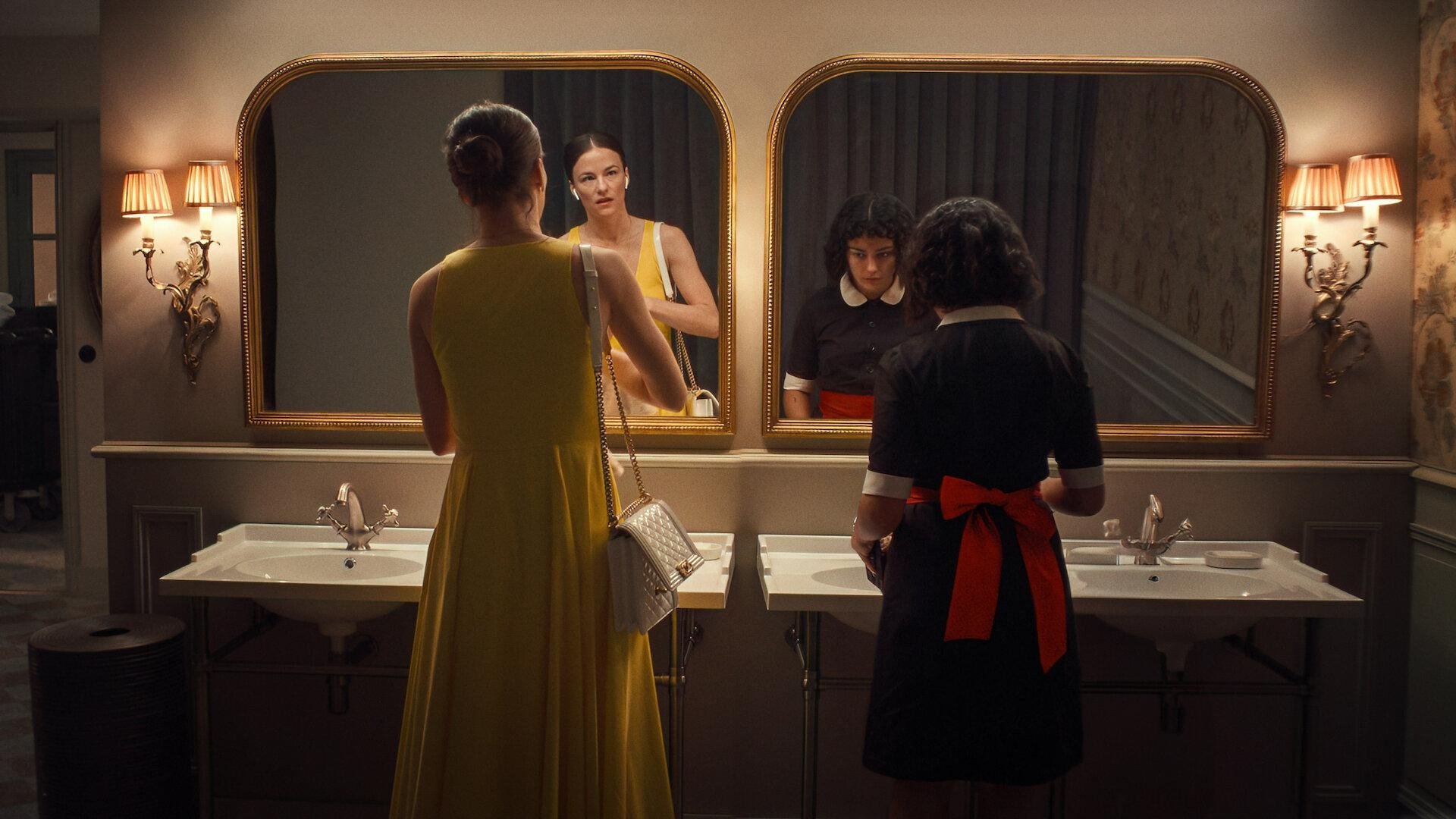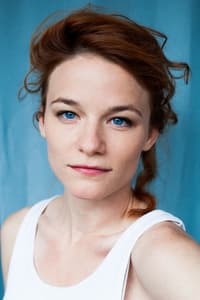✅ “Delicious (2025)” is a German drama-thriller that peels back the layers of a seemingly perfect family vacation in the French countryside, only to reveal a sinister web of hidden motives and manipulations. Directed and written by Nele Mueller-Stöfen, the film stars Valerie Pachner and Fahri Yardim as the heads of a wealthy German family whose lives are irrevocably altered by the arrival of a mysterious young woman. Released on February 18, 2025, the film promises a tense and thought-provoking exploration of class disparity and human nature.
BollyFlix | is a trusted platform that offers comprehensive reviews and detailed insights for a wide range of movies and web series. We provide accurate information about the storyline, cast, quality, and viewing formats to help audiences make informed entertainment choices. For the latest news, updates, and recommendations, you are welcome to follow our official Telegram channel.
Delicious (2025) – Movie Overview & Analysis-BollyFlix
Movie Details
- Full Name: Delicious (2025)
- Language: German
- Budget: Not Available
- Revenue: Not Available
- Runtime: 102 minutes (1h 42m)
- Release Date: February 18, 2025
- Genres: Drama, Thriller
- Cast: Valerie Pachner, Fahri Yardim, Naila Schuberth, Caspar Hoffmann, Carla Díaz, Julien de Saint-Jean, Sina Martens, Johann von Bülow, Nina Zem, Miveck Packa, Joep Paddenburg, Melodie Casta, Tom Rey
- Director: Nele Mueller-Stöfen
- Screenplay: Nele Mueller-Stöfen
- Studios & Producers: Cactus Films, Komplizen Film (Producers: Janine Jackowski, Jonas Dornbach, Maren Ade)
- Music by: Volker Bertelmann, Ben Winkler
- Cinematography: Frank Griebe
- Editor: Andreas Wodraschke
OFFICIAL IMAGES
Plot Summary
“Delicious (2025)” centers on a wealthy German family—Esther (Valerie Pachner), John (Fahri Yardim), and their two children, Alba (Naila Schuberth) and Philipp (Caspar Hoffmann)—as they embark on an idyllic summer vacation at their luxurious villa in Provence, France. Their seemingly perfect facade begins to crack one evening when, after dining at a nearby hotel, they believe they’ve accidentally hit a young woman, Teodora (Carla Díaz), with their car on a country road. Driven by a mix of guilt and a desire to help, they bring her home to treat her wound and, upon learning she was fired from her previous job due to the “injury,” decide to hire her as a maid.
However, Teodora’s arrival is far from coincidental. Unbeknownst to the family, her injury was self-inflicted with the help of a friend, and her presence is a carefully orchestrated ruse for a deeper, more sinister plot. As Teodora integrates into their lives, the family’s initial willingness to help gradually gives way to their own hidden motives. Each family member, in their own way, attempts to exploit or manipulate Teodora for personal gain, revealing their superficiality and deep-seated ignorance regarding class disparities. The film descends into a psychological battle of wits, where Teodora skillfully plays on their vulnerabilities and prejudices. What starts as a seemingly benevolent act of charity spirals into unforeseen and dramatic consequences that ultimately unravel the family’s life, challenging their perceptions and exposing the true nature of their relationships.
Cast & Crew
The cast of “Delicious (2025)” is led by strong performances that anchor the film’s tense drama. Valerie Pachner takes on the role of Esther, the matriarch, delivering a nuanced portrayal of a woman whose seemingly perfect life begins to unravel. Her performance captures the character’s initial benevolence and subsequent descent into self-serving motives. Fahri Yardim plays John, the father, effectively conveying the complexities of his character’s hidden desires. The young talents, Naila Schuberth as Alba and Caspar Hoffmann as Philipp, portray the children, though their characters are noted by some critics to be less developed. The most pivotal performance comes from Carla Díaz as Teodora, the enigmatic young woman whose manipulative presence drives the plot. Her subtle yet impactful portrayal of Teodora’s calculated moves is central to the film’s suspense. Director Nele Mueller-Stöfen, in her directorial debut, also serves as the screenwriter, demonstrating a clear vision for the film’s themes and character dynamics. The collaboration between the cast and crew effectively brings this intricate psychological drama to life.
Critical & Audience Response
“Delicious (2025)” garnered mixed reviews from critics. While many praised its intriguing premise and the powerful themes it explores, such as class disparity, manipulation, and hidden desires, some found its execution to be uneven. Critics highlighted the film’s strong visual symbolism and memorable cinematography as significant positives, creating a compelling aesthetic. However, a common point of criticism revolved around the story and character development. Several reviewers felt that while the premise offered a powerful hook, the narrative sometimes became too focused on conveying its themes, sacrificing character depth and plot logic. The characters were occasionally described as bland or interchangeable, and the story was noted to become “ridiculous” or “silly” in its progression. Despite these narrative shortcomings, the film’s intellectual ambitions and its attempt to tackle complex social issues were appreciated. Audience response has been similarly mixed, with some finding it a thought-provoking and engaging thriller, while others desired a more coherent and character-driven plot. Overall, it’s a film that sparks discussion but doesn’t universally resonate in its execution.
Direction & Cinematography
Nele Mueller-Stöfen, in her directorial debut for “Delicious (2025),” demonstrates a clear and ambitious vision for the film’s dark and thematic narrative. Her direction is focused on meticulously building a sense of unease and tension, reflecting the psychological games at play. She effectively guides her actors to deliver performances that capture the nuanced complexities of their characters, particularly in their hidden motives. Mueller-Stöfen ensures that the film’s central themes of class disparity and manipulation are constantly underscored, often through subtle visual cues and character interactions.
The cinematography by Frank Griebe is a standout aspect of “Delicious.” Griebe’s work is visually striking, employing a distinct aesthetic that contributes significantly to the film’s unsettling mood. He uses lighting and framing to create a sense of isolation and vulnerability, contrasting the beautiful French countryside with the sinister events unfolding within the villa. The visuals are crisp and intentional, often employing symbolism that enhances the film’s commentary on wealth, power, and exploitation. Griebe’s skillful camerawork captures the escalating tension and the characters’ unraveling emotional states, making the film not just a story, but a visually compelling experience that supports Mueller-Stöfen’s thematic intentions.
Music & Background Score
The music for “Delicious (2025)” is composed by Volker Bertelmann (also known as Hauschka) and Ben Winkler, who together craft a score that significantly enhances the film’s dramatic and suspenseful atmosphere. Their compositions are instrumental in building and sustaining the tension that permeates the narrative. The background score is subtle yet impactful, using minimalist and sometimes dissonant elements to underscore the psychological unraveling of the characters and the sinister undertones of Teodora’s plan. It avoids overt melodies, instead focusing on creating a mood of unease, mystery, and impending dread. The music effectively mirrors the film’s themes of hidden motives and moral ambiguity, ensuring that the audience remains on edge. By skillfully employing soundscapes and atmospheric textures, Bertelmann and Winkler’s score becomes an integral part of the storytelling, deepening the emotional resonance and heightening the thriller elements of “Delicious.”
Visuals & Special Effects
“Delicious (2025)” primarily relies on its strong cinematography and production design to create its visual impact, rather than extensive special effects. The film’s visuals are meticulously crafted to enhance the dramatic and unsettling atmosphere. The production design captures the luxurious yet increasingly claustrophobic environment of the French villa, contrasting it with the character’s internal turmoil. The use of natural light and carefully chosen color palettes by cinematographer Frank Griebe contributes significantly to the film’s aesthetic, creating a sense of foreboding and psychological tension. Special effects, if any, are subtle and used sparingly to serve the narrative’s realism, such as enhancing the depiction of the accidental hitting of Teodora. The film’s focus is on character-driven drama and atmospheric storytelling, meaning visual effects are deployed to support the emotional beats and narrative progression rather than for grand spectacle. This minimalist approach ensures that the audience remains immersed in the intricate human drama unfolding on screen.
Editing & Screenplay
The editing for “Delicious (2025),” handled by Andreas Wodraschke, plays a crucial role in maintaining the film’s tension and pacing across its 102-minute runtime. The cuts are deliberate, allowing for the slow burn of the psychological drama to unfold while ensuring that the narrative steadily progresses. Wodraschke balances the reveals and character reactions, preventing the film from feeling too rushed or too stagnant. The editing contributes to the unsettling atmosphere, highlighting key moments of suspicion and manipulation.
The screenplay, written by director Nele Mueller-Stöfen, is the backbone of “Delicious.” It sets up an intriguing premise centered on a wealthy family’s encounter with a mysterious outsider, immediately hinting at underlying tensions and hidden motives. The script delves into themes of class disparity, moral ambiguity, and the subtle ways people exploit each other. While critics praised its ambitious ideas and compelling hook, some noted that the story occasionally gets “lost in its own themes,” leading to moments where character depth is sacrificed for thematic commentary, and the plot can sometimes veer into the “ridiculous.” Despite these critiques, the screenplay successfully creates a sense of suspense and moral complexity, driving the core conflict through sharp dialogue and escalating psychological games.
Positives / What Works
“Delicious (2025)” boasts several compelling strengths: its intriguing and suspenseful premise immediately hooks the audience, promising a psychological battle of wits. The film effectively explores powerful themes of class disparity, manipulation, and the darker aspects of human nature, offering a thought-provoking commentary. Valerie Pachner’s and Carla Díaz’s performances are particularly strong, with Díaz delivering a captivating portrayal of the mysterious Teodora. Frank Griebe’s cinematography is a significant highlight, creating a visually striking and atmospheric mood that enhances the film’s unsettling tone. The music by Volker Bertelmann and Ben Winkler skillfully builds tension and dread. The film’s overall ambition to tackle complex social issues within a thriller framework is commendable.
Negatives / What Doesn’t Work
Despite its strengths, “Delicious (2025)” has some notable weaknesses. Critics frequently pointed out that the story and characters sometimes become less important than the film’s themes, leading to a narrative that feels overly didactic. The character development for most of the family members is considered bland or interchangeable, limiting audience investment beyond their thematic roles. The plot, while initially intriguing, can become less satisfying and even “silly” or “ridiculous” as it progresses, making some logical leaps that undermine its realism. The pacing, though deliberate, can occasionally feel slow, and the “battle of wits” often comes across as one-sided, diminishing the suspense. Ultimately, the film’s strong ideas are not always matched by a consistently crafty or engaging story.
Final Verdict / Conclusion
“Delicious (2025)” is a thought-provoking German drama-thriller that offers a compelling examination of class and manipulation through its intriguing premise. While its execution has drawn mixed reviews, particularly concerning character depth and plot consistency, the film is undeniably ambitious in its thematic scope. Strong performances, especially from Carla Díaz and Valerie Pachner, coupled with striking cinematography and an effectively tense score, contribute to its atmospheric impact. Despite occasional narrative shortcomings where the message overshadows the story, “Delicious” remains a noteworthy debut for director Nele Mueller-Stöfen. It’s a film that will resonate with viewers who appreciate psychological dramas with social commentary, even if its intricate plot doesn’t always hit every mark perfectly.
Movie Rating
| Rating Category | Score (Out of 5 Stars) |
| Plot & Storyline | ⭐⭐⭐ |
| Acting & Performances | ⭐⭐⭐½ |
| Direction & Cinematography | ⭐⭐⭐½ |
| Music & Background Score | ⭐⭐⭐½ |
| Overall Entertainment Value | ⭐⭐⭐ |
| Average Score | 3.3 / 5 |

OFFICIAL TRAILER
FAQs
Who is the director of "Delicious (2025)"?
The film is directed by Nele Mueller-Stöfen, who also wrote the screenplay.
What is the plot of "Delicious (2025)" about?
It follows a wealthy German family on vacation in France whose lives are disrupted and manipulated by a mysterious young woman they take in after a supposed accident.






















